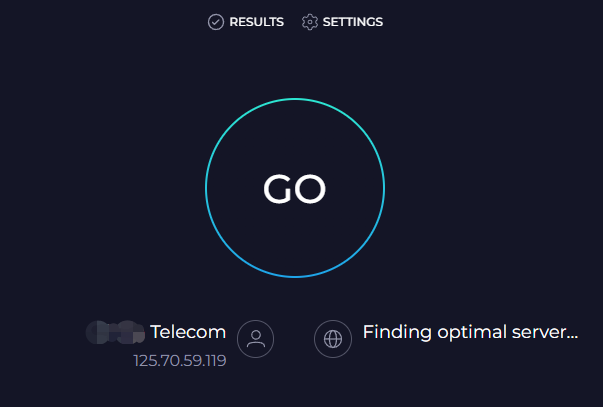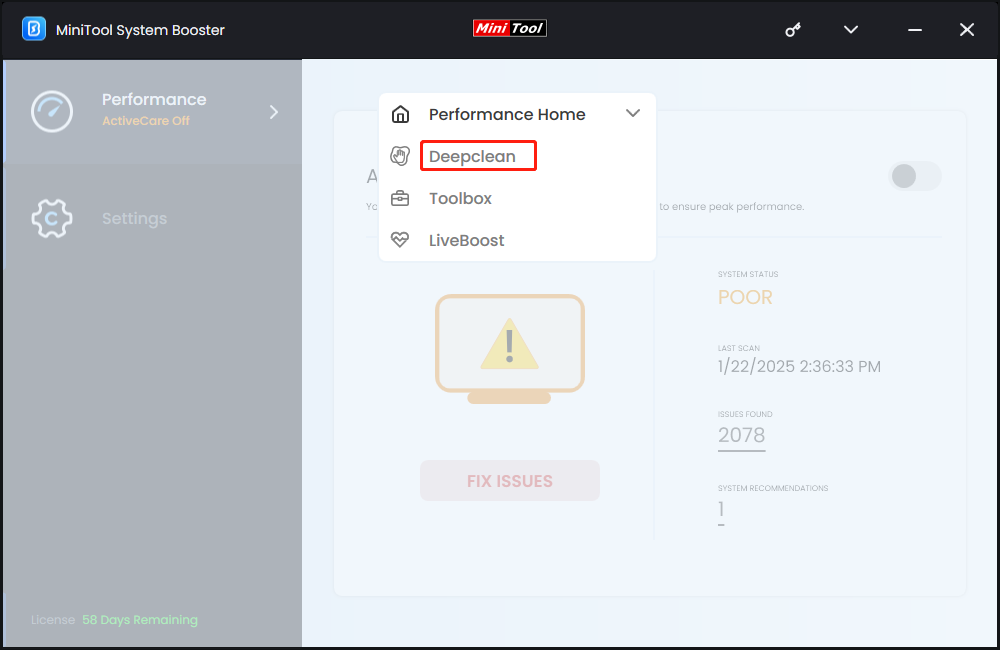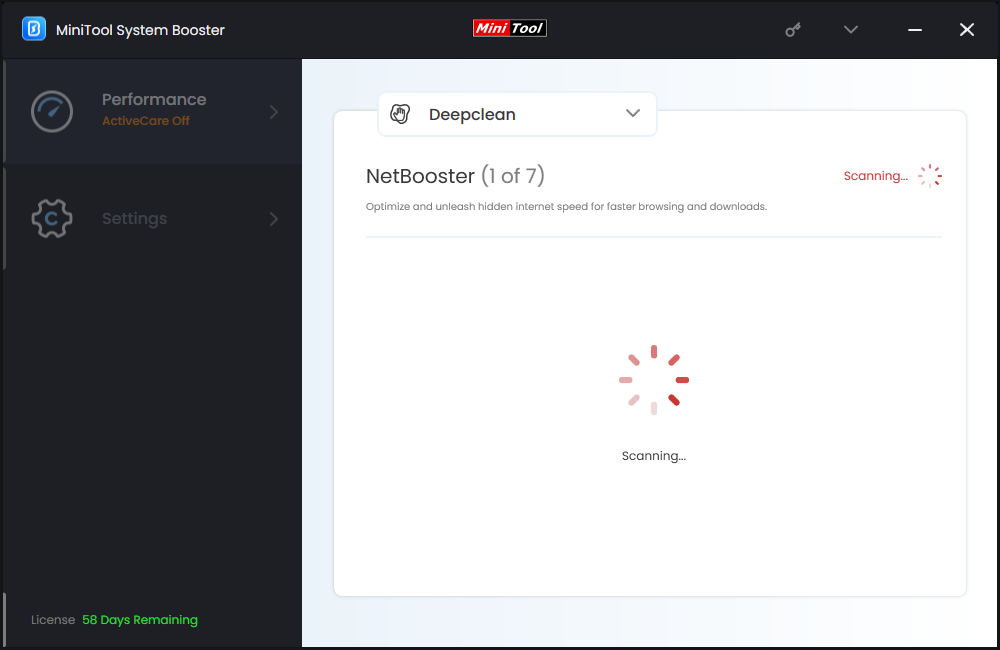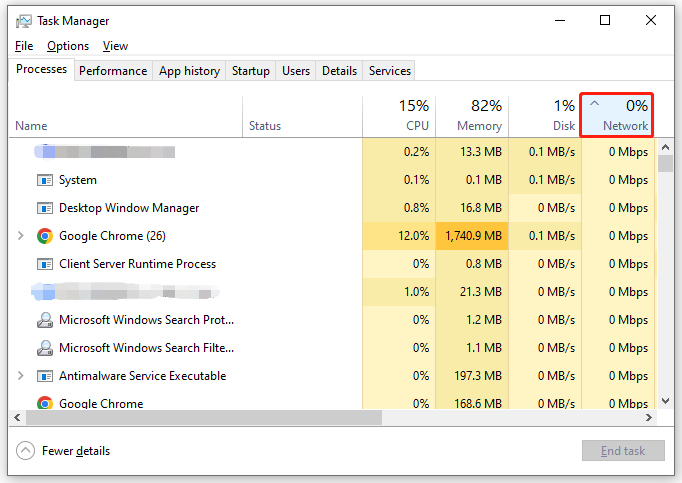There’s nothing worse than struggling with high ping on Ethernet. This can disrupt your work flow or gameplay. In this guide, we will sort out why your ping is so high and how to lower it for better responses for you.
Ping Spikes on Ethernet
Ping refers to the time it takes for a signal to travel between the source and the target host. It can help to test and verify the reachability of a host on an Internet Protocol network. Obviously, we prefer a lower ping than a higher one because it indicates fewer lags and smoother user experience. Some of you might get abnormally high ping on Ethernet while playing PC games or stream videos.
Why is your ping so high? There are various factors that can contribute to this issue including:
- Router location.
- Concurrent apps and programs.
- Corrupted DNS records.
- The physical distance between your location and the server.
- The number of devices connected to your network.
- The server is during peak hours.
How to Fix High Ping on Ethernet Easily?
Way 1: Check Your Router
High ping on Ethernet is usually responsible for your router setup. Ideally, the distance between your computer and router should be as close as possible. Meanwhile, any barriers between them like walls might also trigger a lagging connection. Running the last firmware is also important.
When you encounter high latency on your computer, one of the most common remedies is to restart your router. By doing so, it will clear cached internet data in its memory.
Way 2: Perform an Internet Test
To fix high ping on local network, it’s a good option to run a simple speed test to check if you are getting the speeds you pay for. Follow these steps:
Step 1. Open your browser.
Step 2. Go to Speedtest and hit GO to start the internet speed test.

Then, it will display the current download speed, upload speed, latency (ping), and server location. If it is much slower than expected, you’d better troubleshoot the internet connection or contact your Internet Service Provider (ISP).
Way 3: Speed up Your Internet Connection
Speaking of internet connection, MiniTool System Booster is a good assistant to you. This PC tune-up software is targeted to max out your system performance from various aspects such as releasing more available memory, tidying up your hard drive, uninstalling PUPs, terminating resource-hogging processes, and more.
The NetBooster feature is capable of optimizing and unleasing hidden internet speed for faster browsing and downloads. Here’s how to run it to fix high ping on wired LAN:
Step 1. Launch MiniTool System Booster.
MiniTool System Booster TrialClick to Download100%Clean & Safe
Step 2. In the Performance page, click on Performance Home and select Deepclean.

Step 3. Click on START CLEAN to perform a thorough cleanup of your computer. The first task called NetBooster will fine-tune each hidden internet settings or restore internet settings to defaults.

Beyond NetBooster, you can also utilize Network Scanner in the Toolbox page to scan for the devices that use excessive bandwidth and remove them from your network manually.
Way 4: Reduce the Devices Connected to Your Network
If your bandwidth is hogged by too many devices, it will be less smooth for your data to transfer. Therefore, please make sure to disconnect other unused or unnecessary smart phones, tablets, or laptops. This can help you to free up bandwidth and lower the ping.
Way 5: Switch to a Different Server
Another culprit of high ping on Ethernet might be your server. The performance and capacity of each server is limited. Once the server you connected to is overloaded due to a release of popular games, it will have trouble handling incoming requests and then cause higher latency. In this case, you can consider connecting to the closest server to your physical location and bypassing the peak hours.
Way 6: Flush DNS
There is a possibility that your device has cached an outdated DNS record or stored corrupted cache, leading to high ping on Ethernet connections. Flushing DNS can replace these corrupted or outdated files to make room for fresh files, while it’s noted that it will reset your network connection. Here’s how to flush your DNS on Windows 10/11:
Step 1. Press Win + S to evoke the Windows Search bar.
Step 2. Type cmd to locate Command Prompt and right-click on it to select Run as administrator.
Step 3. In the command window, run the following commands one by one and don’t forget to hit Enter after each command.
netsh winsock reset
netsh int ip reset
ipconfig /release
ipconfig /renew
ipconfig /flushdns
Once done, restart your computer to see if abnormally high ping over Ethernet is gone.
Way 7: Manage Background Apps
Programs and applications running in the backend might gobble up valuable system resources that your current task requires to run with, so please make sure there are no resource-hungry processes running simultaneously including downloading big files, installing updates, streaming content, etc. If you have no idea which ones are the biggest bandwidth offenders, follow these steps:
Step 1. Right-click on taskbar and select Task Manager.
Step 2. Click on Network to view the network usage of each process in ascending or descending order.

Step 3. Right-click on the bandwidth-hogging tasks one by one and select End task.
We Need Your Voice
This post discovers how to say goodbye to high ping on Ethernet. In addition, it’s strongly recommended to scan your computer with MiniTool System Booster for better system performance and stability.
MiniTool System Booster TrialClick to Download100%Clean & Safe
For more queries about our product, don’t hesitate to consult us via [email protected]. We will get back to you as soon as possible.



